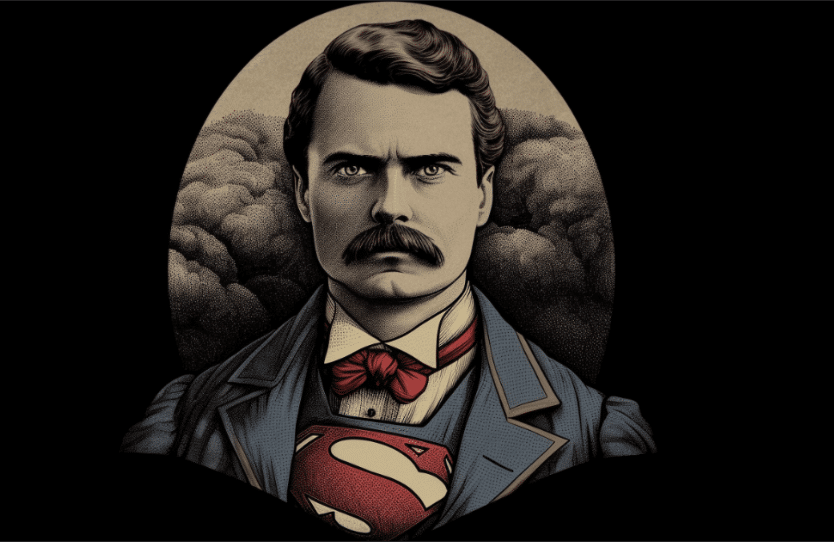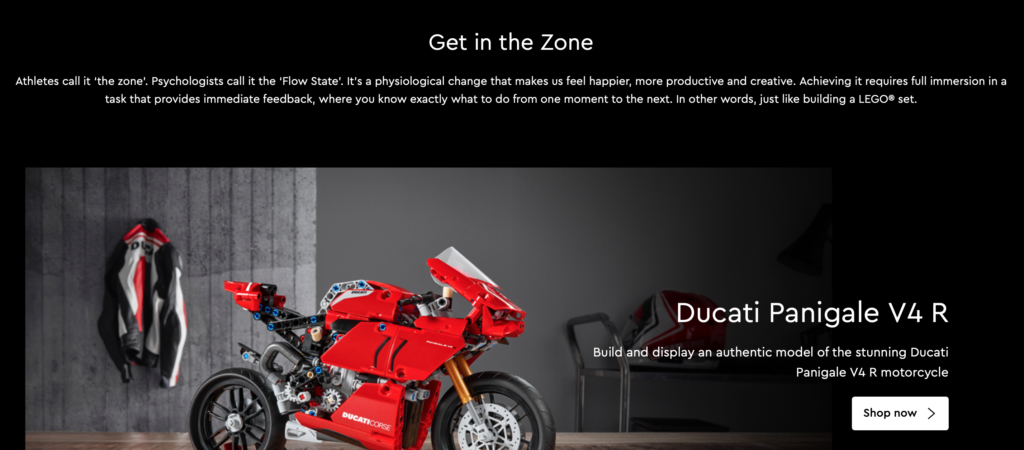Defining Flow
Defining Flow: A Journey Through History and Science
Still here? Great. Let’s dive into the fascinating history of flow and finally define what these states are all about. Flow isn’t some woo-woo concept cooked up by surfers and skateboarders. It’s grounded in science – a field with thousands of studies investigating its mechanisms, applications, and benefits. But flow isn’t new. The idea has been simmering for centuries, crossing disciplines, philosophies, and eras.
Let’s take a quick history lesson. I’ll give you the highlights—you can tumble down the rabbit holes of Nietzsche, Maslow, and Csíkszentmihályi on your own.
Nietzsche: The First High-Performance Philosopher
Flow science arguably began in the 1870s with Friedrich Nietzsche, the man many consider the first philosopher of high performance. This was a time when Darwin’s Origin of Species had people fixated on the evolution of the body. Nietzsche took it a step further, proposing that the mind and consciousness; also evolve to create the Übermensch – translated as “Beyond-Man,” “Over-Man,” or, more controversially, “Superman.”

Nietzsche believed humans were capable of much more.
Not just individuals but entire societies could transcend their limits. He called flow states “Rausch”, observing these moments of heightened consciousness during religious rituals. Today, you might know these states by other names: “in the zone,” “runner’s high,” or “the deep now.”
Maslow: Flow for the Intellectual Elite
Fast forward to the 1950s and the work of Abraham Maslow, the psychologist famous for his Hierarchy of Needs. While Maslow’s early work focused on basic human survival, his later years zeroed in on peak experiences—what we now call flow states. Maslow studied extraordinary individuals like Einstein and observed that flow wasn’t confined to religion or physical pursuits. It also fueled intellectual breakthroughs and transcendence.
Maslow noticed that flow wasn’t a purely intellectual phenomenon either—it wasn’t restricted to the Einsteins of the world. Flow wasn’t about IQ. It was about engagement.
Csíkszentmihályi: The Godfather of Flow
Finally, in the late 20th century, we arrive at Mihály Csíkszentmihályi (pronounced chick-sent-me-high), a Hungarian-American psychologist who became the godfather of flow science. While his peers focused on pathology—depression, anxiety, trauma—Csíkszentmihályi asked a radical question:
What makes life worth living?
His research began in the unlikeliest of places: concentration camps. He observed how even in the most horrific conditions, people could experience fleeting moments of joy, often by losing themselves in an activity—like chess. He called these states “flow.” His landmark book, Flow: The Psychology of Optimal Experience, detailed his findings, which spanned cultures, professions, and circumstances.
Flow wasn’t just for artists, athletes, or intellectuals. Csíkszentmihályi found it in factory workers in Chicago, blind nuns in Europe, and doctors in surgery. The common thread? A deep sense of engagement in the task at hand.
I developed a theory of optimal experience based on the concept of flow – the state in which people are so involved in an activity that nothing else seems to matter; the experience itself is so enjoyable that people will do it even at great cost, for the sheer sake of doing it.
What is flow:
Flow is an optimal state of consciousness where we perform at our best and feel our best. It’s a state where:
- Action and awareness merge.
- Time distorts (slows down or speeds up).
- The inner critic goes silent.
This isn’t just a mental state—it’s biological. In flow, your brain’s prefrontal cortex powers down (a process called hypofrontality), silencing your inner critic and sense of self. Neurochemicals like dopamine, norepinephrine, and endorphins flood your system, creating a cocktail of focus, energy, and creativity.
Do not skip the following video.
Steven Kotler explains what is takes for you to be your best when it matters most. The best summary of flow I have ever seen, enjoy.
How Do You Know You’re in Flow?
According to Csíkszentmihályi, flow has several defining characteristics. These include:
- Complete Concentration: You’re fully immersed in the task. No distractions.
- Merger of Action and Awareness: You’re so engaged that you and the activity feel like one.
- Loss of Self: The inner critic is gone. You’re free from doubt and fear.
- Time Dilation: Hours feel like minutes—or vice versa.
- A Sense of Control: Even in chaos, you feel in charge.
- Autotelic Experience: The task is rewarding in itself.
- Immediate Feedback: You know how you’re doing in real time.
- Clear Goals: You know exactly what you’re aiming for.
- The Challenge-Skills Ratio: The task is just hard enough to stretch you but not overwhelm you (often called the 4% rule).
The Benefits of Flow
Flow isn’t just a feel-good state—it’s a performance multiplier. Studies show that in flow:
- Motivation and productivity increase by 500%.
- Learning accelerates by 200%.
- Creativity skyrockets by 430%.
- Collaboration, grit, and emotional intelligence all improve.
And yet, most people spend their workdays in the exact opposite state:
- 84% stressed.
- 67% burned out.
- 70% chronically distracted.
Imagine what medicine would look like if flow were the norm rather than the exception.
Where Do We Go From Here?
If this all feels overwhelming, start simple. Ask yourself: when was the last time you truly lost yourself in something? What were you doing? For many, the answer lies in childhood – playing football, building Lego, dancing, or drawing. These were your first encounters with flow.
Reintroducing those activities – or finding new ones – can bring flow back into your life. Flow isn’t just a tool for work; it’s the key to a fulfilling life.
In future posts, we’ll break this down further, starting with the positive psychology basics: sleep, gratitude, autonomy, and mindfulness. Because let’s face it – you’re not hitting flow on four hours of sleep.
Once we’ve got the fundamentals locked in, we’ll dive back into the nitty-gritty of flow science and its applications in medicine.
Remember: the more flow you experience, the more flow you attract. Let’s find it together.
Think ‘flow’ is not possible or mainstream enough yet, observe this advert from Lego in 2020:

And finally…
According to Csíkszentmihályi, what is the secret to a happy life?
In many ways, the secret to a happy life is to learn to get flow from as many of the things we have to do as possible.
Even if you can’t create flow experiences at work (which I know we can), we can develop them in your personal life. Imagine being able to spend more time to do the things you love, switch off and to prevent burnout.
For the first posts we’ll focus on what is called the ‘positive psychology basics’. We’ll dial in sleep, gratitude, autonomy and mindfulness. You can’t achieve the impossible with 4hrs of sleep. Only once we have the basics tuned will I take us back on the flow journey.
References
- Darwin C. On the origin of species by means of natural selection, or, The preservation of favoured races in the struggle for life. 1859
- Nietzsche FW. Also Sprach Zarathustra. 1893 [Thus Spake Zarathustra] [Übermensch]
- Nietzsche FW. Götzen-Dämmerung, oder, Wie man mit dem Hammer philosophiert. 1889 [Twilight of the idols, or, How to philosophize with a hammer] [Rausch]
- Maslow AH. A theory of human motivation. Psychological Review, 1943; 50(4): 370–396
- Csikszentmihalyi M. Flow: The Psychology of Optimal Experience. 1989
Further reading
- Mastery by George Leonard
- The Breakout Principle: How to Activate the Natural Trigger That Maximizes Creativity, Athletic Performance, Productivity and Personal Well-Being By Herbert Benson
- Group Genius by Keith Sawyer
- Flow: The Psychology of Optimal Experience By Mihaly Csikszentmihalyi
- Rise of Superman By Steven Kotler
- Stealing Fire By Steven Kotler and Jamie Wheal
- The Art of Impossible – A Peak Performance Primer By Steven Kotler
Additional Resources:
Mihaly Csikszentmihalyi asks, “What makes a life worth living?” Noting that money cannot make us happy, he looks to those who find pleasure and lasting satisfaction in activities that bring about a state of “flow.”
Dr Neil Long BMBS FACEM FRCEM FRCPC. Emergency Physician at Kelowna hospital, British Columbia. Loves the misery of alpine climbing and working in austere environments (namely tertiary trauma centres). Supporter of FOAMed, lifelong education and trying to find that elusive peak performance.
